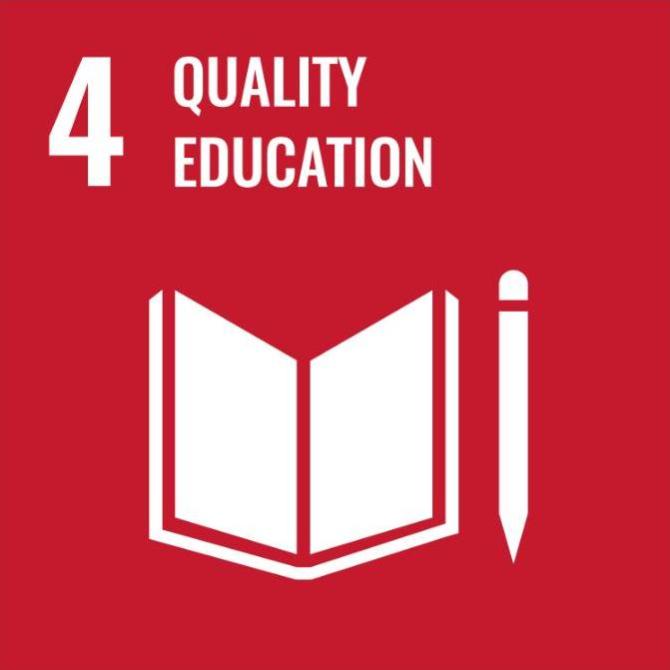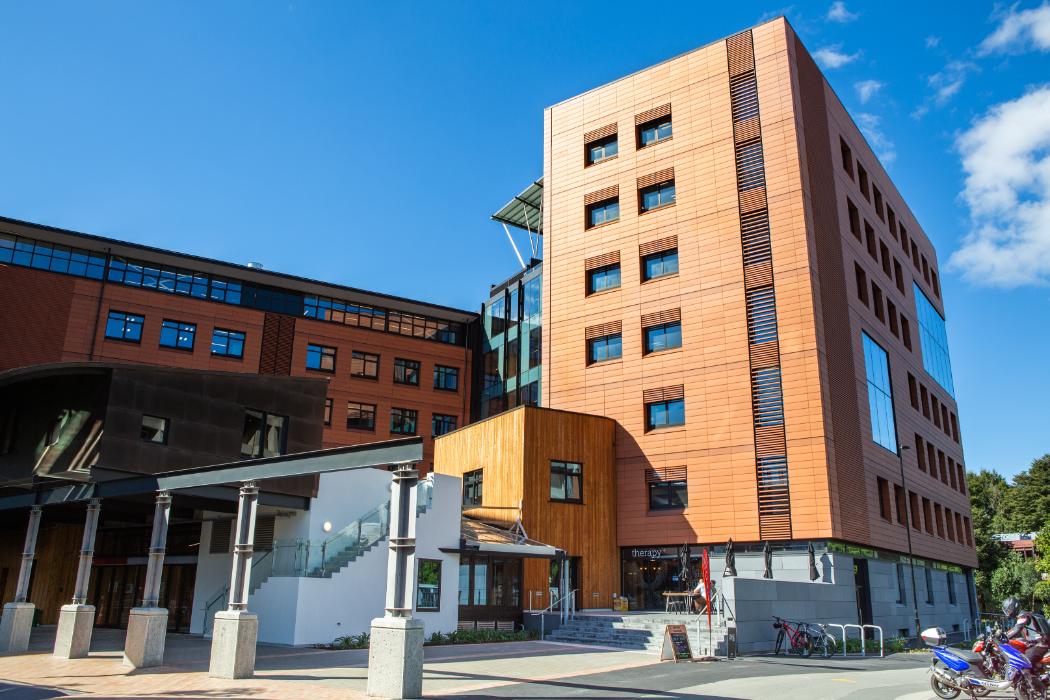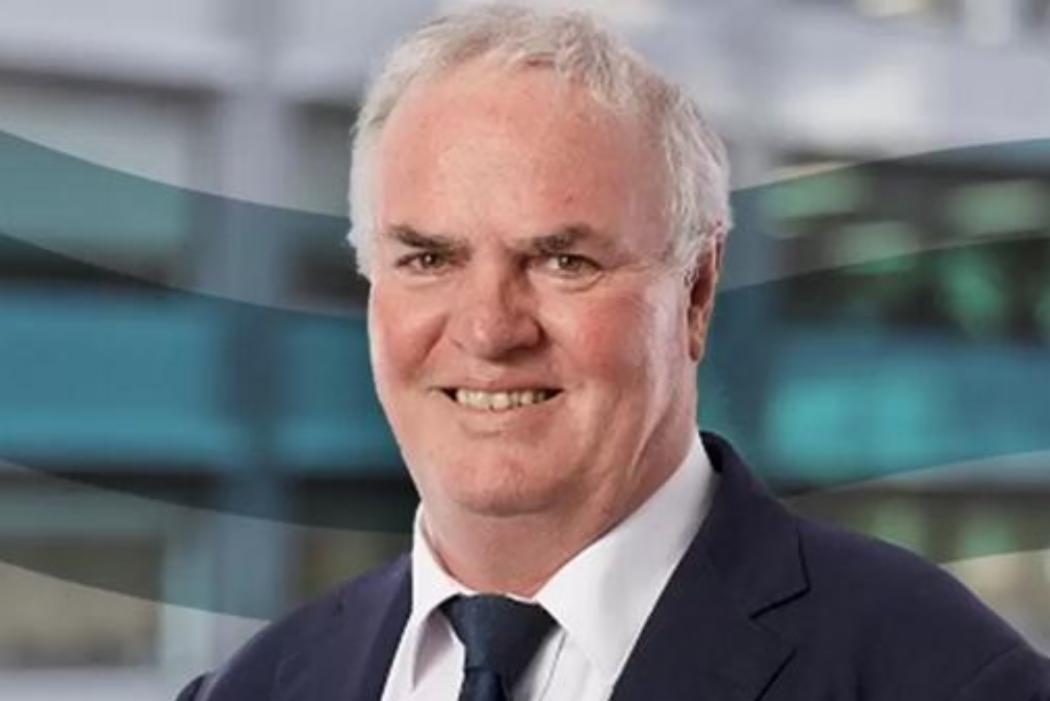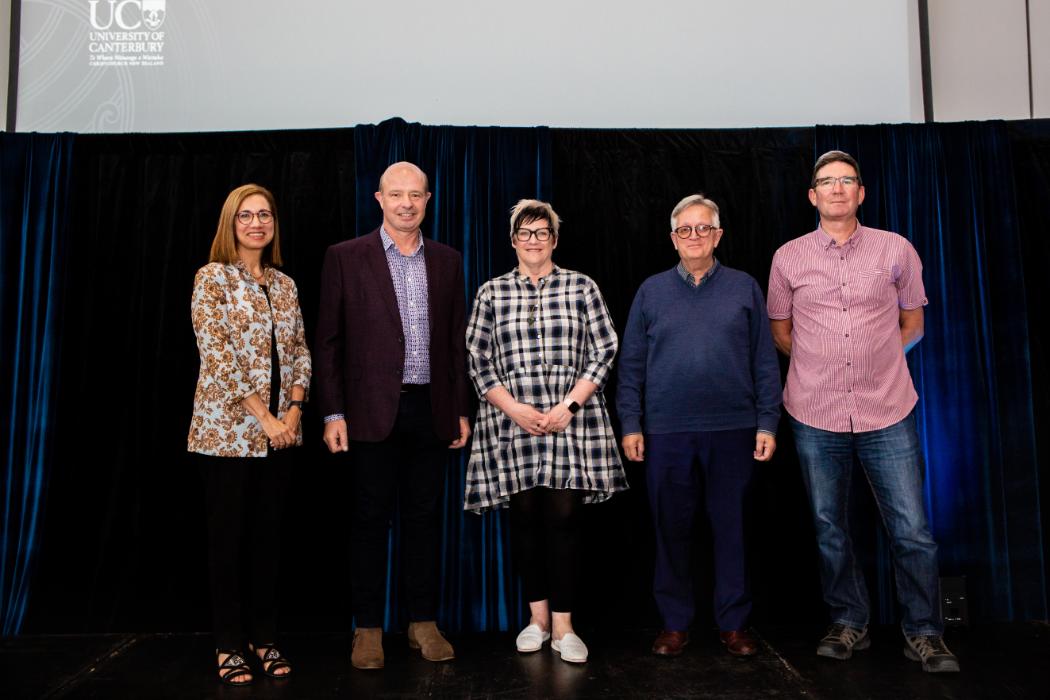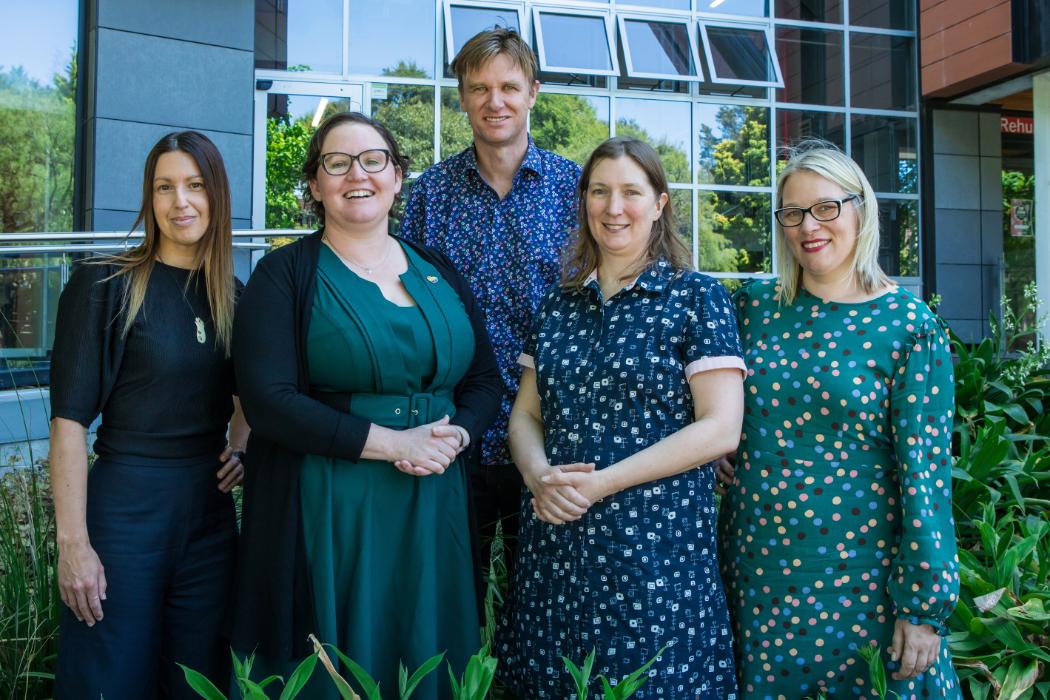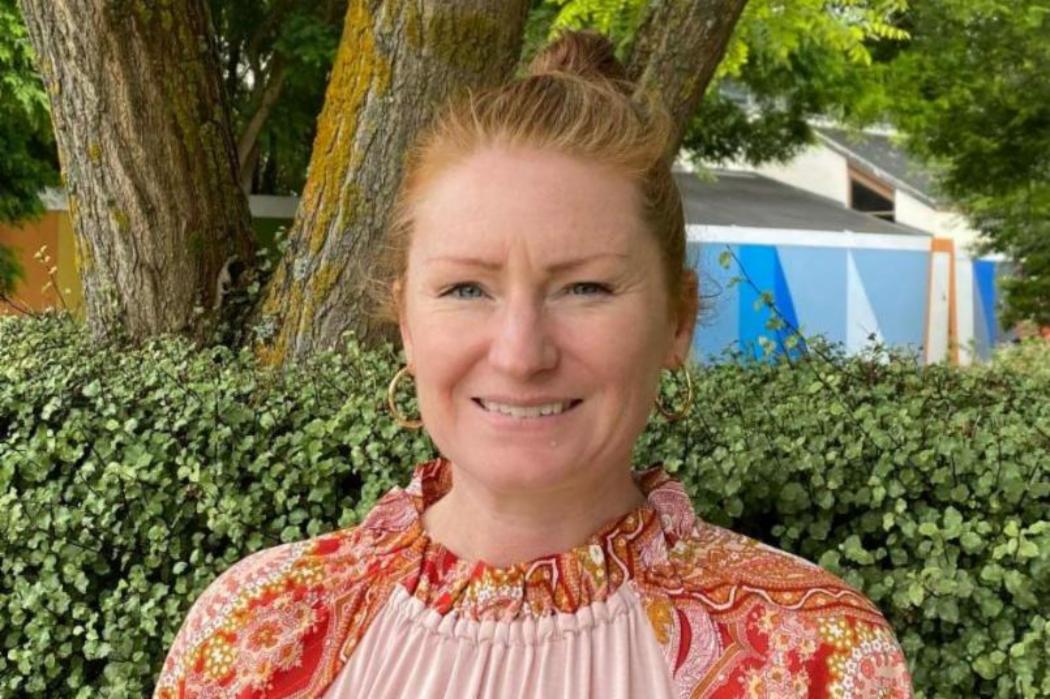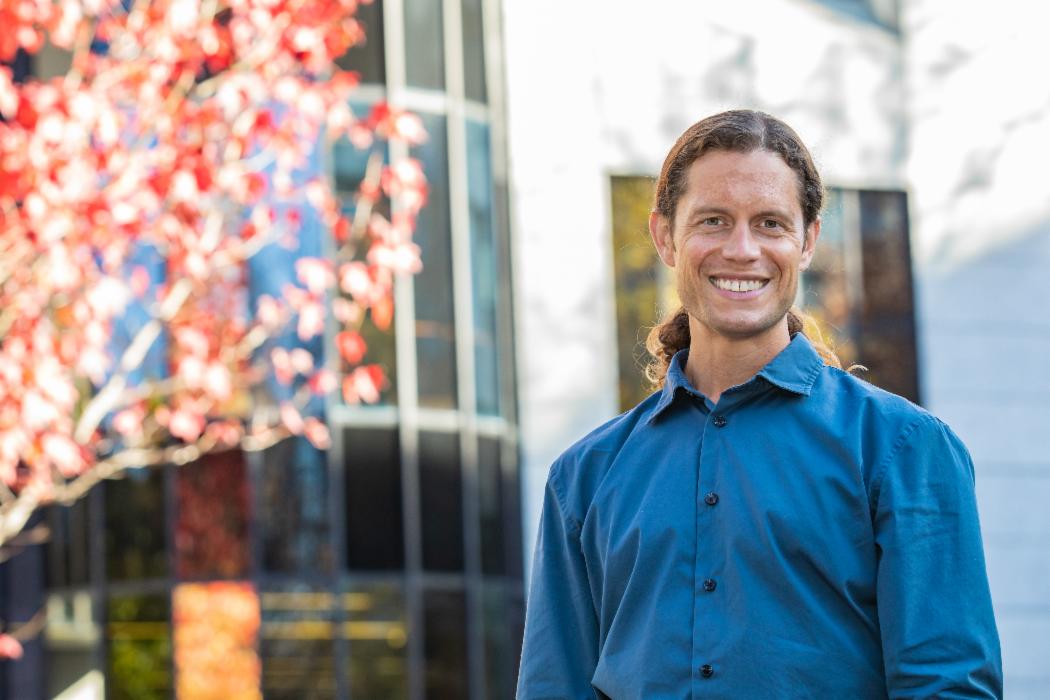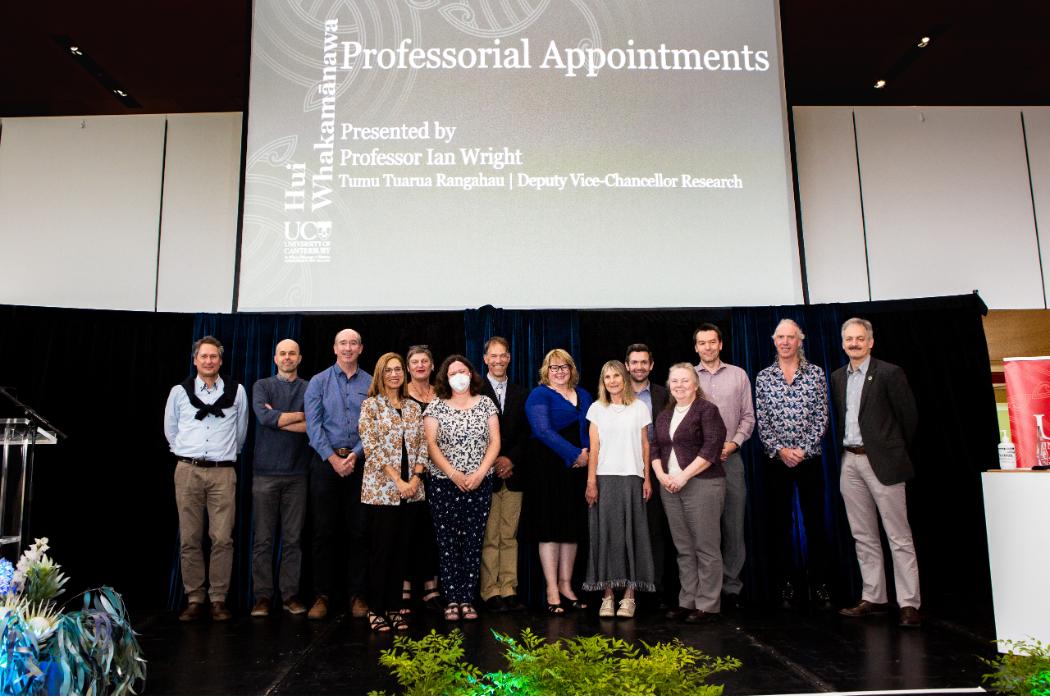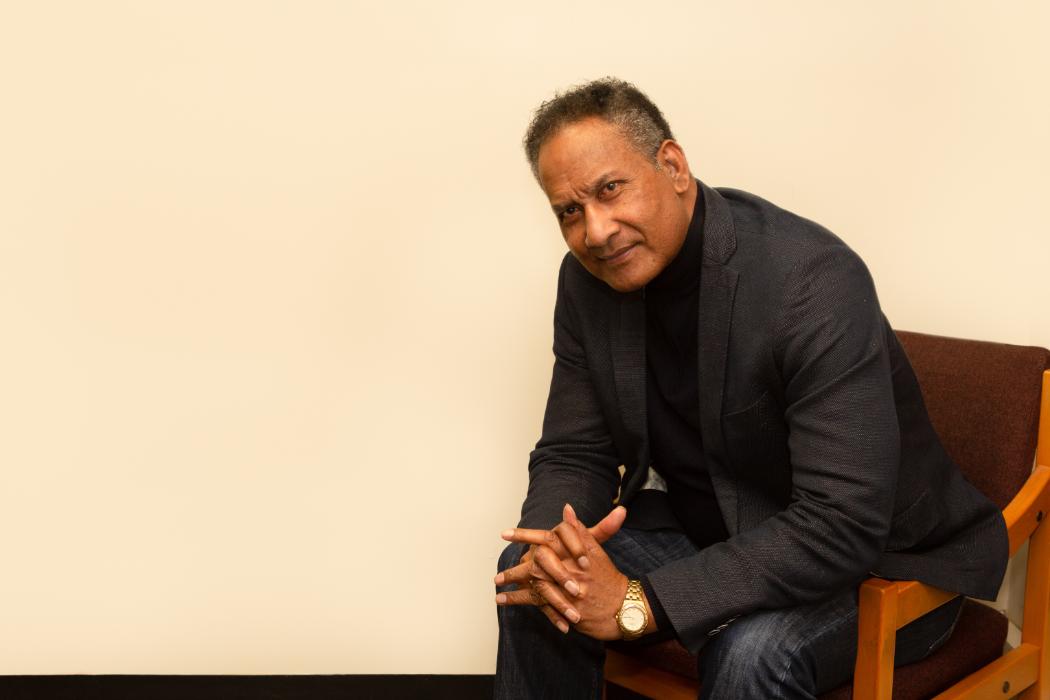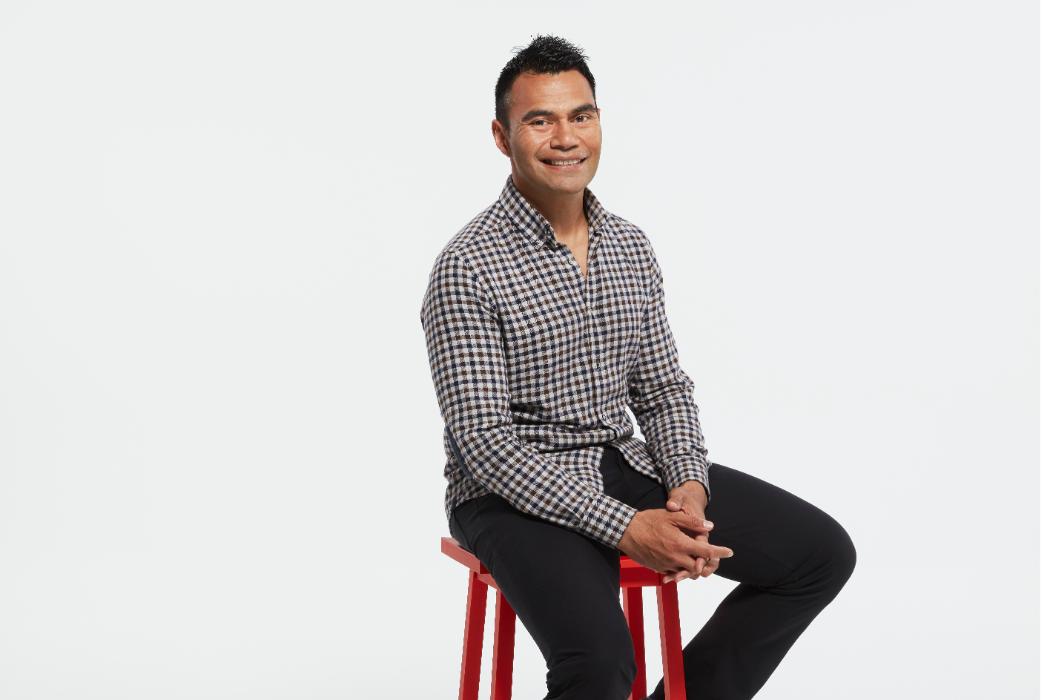Training as an experiential educator set a foundation for reflective practice, and enthusiasm for creating an interactive classroom. “While I love field teaching, it is not also possible to always be in the field, so I develop ways to ‘bring the outside in’, using a range of props and interactive activities to help students understand natural processes”. Feedback from students supports her and earned her a UCSA ‘Best Lecture Props Award’.
Early adoption of mātauranga Māori in her teaching came naturally to her.
“I just think it’s part of being a New Zealander to learn te reo Māori,” she says.
Previous employment as a ranger for the Department of Conservation, and later as a glacier guide, also “really sparked interest in some of the origin stories”.
“When you are walking around the landscape with clients or groups of students it’s good to share those stories. I’m very much a storyteller.”
Initially, bringing te ao Māori into the classroom required courage and seeking the right advice, she says.
“You must always be guided by your Māori colleagues, because you have to make sure what you are doing is culturally appropriate. And sometimes that is quite daunting for people, but it’s a matter of having conversations and learning as much as possible.
“I have many great colleagues who have been really inspirational in helping me develop my ideas and think about how to integrate these themes into my teaching.”
After taking professional development courses at UC in te reo Māori, te Tiriti o Waitangi and others, Associate Professor Purdie launched into full immersion te reo and tikanga through Te Wānanga o Aotearoa. She says the experience gives her more empathy for her own students (especially when she has an assignment due).
As the first in her family to go to university, Associate Professor Purdie understands students in similar situations. She worked hard to reach her goals, completing her bachelor’s degree in geography extramurally while doing shift work. If it was quiet, she says she could be working on an assignment at 3am. Earning scholarships for her postgraduate studies, she later studied on-campus at Massey University for her master’s degree and returned to distance learning while undertaking her PhD research (studying the Tasman Glacier) through Victoria University of Wellington.
Online learning is now well established, with UC continuing to offer students the opportunity to learn remotely across all courses.
“I guess I have an open mind to the way we teach learning because I’ve come from both distance and face-to-face systems,” she says. “But there’s an energy in the classroom. The lectures are big – 250 students – but the labs are small with 20 students. I increased the occurrence of my labs to reduce student numbers and aid interaction. This is really important for first-year students, to provide them with opportunities to get to know each other and develop confidence in working and interacting with different people.
“Then when they get a job interview, they have the skills to communicate well. We have to cater to those who can’t attend classes in person, but we do have that duty of care to develop students’ social skills for the future.”
Her care extends to preparing students for employment after graduation. “Take my fourth-year students. As postgraduates they’ve clearly demonstrated they are academically capable. At that point it’s not about shovelling more information into their heads, because they are totally capable of finding that themselves, it’s about facilitating their learning and developing their skills. If they are applying for jobs, what will give them the advantage? If you can say to an employer, ‘I’ve set up weather stations and I’ve used radar and I’ve completed DOC research permits’, those real-world skills are very helpful.”
Despite the accolades, including a UC Teaching Award, an Ako Aotearoa teaching award, numerous nominations for Lecturer of the Year awards, and now the UC Teaching Medal, Associate Professor Purdie is still working to improve her teaching, such as incorporating Pasifika perspectives and expanding on students’ analytical thinking.
“You’ve got to evolve, you can’t get stuck in your ways,” she says.
Associate Professor Purdie is a leader and mentor who surrounds herself with other motivated and outstanding teachers at UC. “You immerse yourself around other people who are keen on teaching and it helps to keep that fire under your practice,” she says.
See Associate Professor Purdie’s glacial research in a video here.
Te Kaunihera o Te Whare Wānanga o Waitaha | University of Canterbury Council Teaching Medal
Te Kaunihera o Te Whare Wānanga o Waitaha | University of Canterbury Council Medals are awarded to academics whose work has been recognised as world class in their disciplines. They are the highest honour the University’s council can extend and are awarded for Teaching, Research or Innovation.
The UC Teaching Medal recognises:
- sustained and outstanding teaching excellence
- leadership in wider teaching and learning. This wider leadership should be either across the University (rather than in one discipline), nationally and/or internationally. Leadership may be in the form of innovation in teaching and teaching research, fostering colleagues' development, communication and support of good practice, and development in teaching.
Read more about UC Council’s 2022 medallists here.

